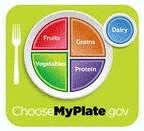Nutrition and Health Sciences, Department of

Department of Nutrition and Health Sciences: Dissertations, Theses, and Student Research
Date of this Version
Summer 7-2013
Document Type
Thesis
Citation
Hall, E. A Pilot Mixed Methods Evaluation Study of the Effectiveness of an After-School Cooking Club Curriculum for Middle School Students [master's thesis]. Lincoln: University of Nebraska-Lincoln; 2013.
Abstract
Introduction: Obesity has exponentially increased each decade, with approximately one third of the adult American population obese and another one third overweight. More startling is that these trends are rising in children as well. With economic, health, social, mental, and emotional consequences, childhood obesity has quickly risen as a significant issue to tackle. Increases in fast food consumption have been linked with overweight status, and home cooked meals are slowly becoming part of the past. The adolescent time period, in which children are slowly gaining more autonomy and conducting their activities independent from their parents, is an optimal time to stage a cooking skill intervention. The few studies that have thus far been conducted involving cooking interventions show promise and room for further investigation using a mixed methods approach.
Purpose: The purpose of this study was to examine the effectiveness of a cooking intervention in 6th-8th grade students in an after-school setting in terms of change in knowledge, attitudes, behaviors, and parental interaction. Secondarily, it sought to determine which teaching method was most effective in engaging students.
Methods: A convergent model under the triangulation mixed methods model design was used. Data collected included pre- and post-youth surveys (quantitative), focus groups (qualitative), and observations (quantitative and qualitative). A cooking intervention comprised of eight sessions spread out over eight weeks and lasting 45 minutes per week was conducted with 6th-8th grade middle school students (n=10) in their participating middle school’s home economics classroom.
Results: Data indicated that results of the intervention included: 1. Increased cooking skill knowledge, 2. No behavior change, 3. Positive attitude toward cooking, 4. Little to no parental interaction in terms of cooking, 5.Interactive teaching method was most effective 6. Increased group cooperation.
Conclusion and Implications: This study indicated that through an after-school cooking club, it is possible to increase the knowledge of 6th-8th grade students, especially with the use of more interactive teaching methods. More research is needed to determine how to create behavior change and increase student/parent interaction involving cooking.
Advisor: Candace Kohnke


Comments
A thesis Presented to the Faculty of The Graduate College at the University of Nebraska In Partial Fulfillment of Requirements For the Degree of Master of Science, Major: Nutrition & Health Sciences, Under the Supervision of Professor Candace Kohnke. Lincoln, Nebraska: July, 2013
Copyright (c) 2013 Elisha M. Hall.